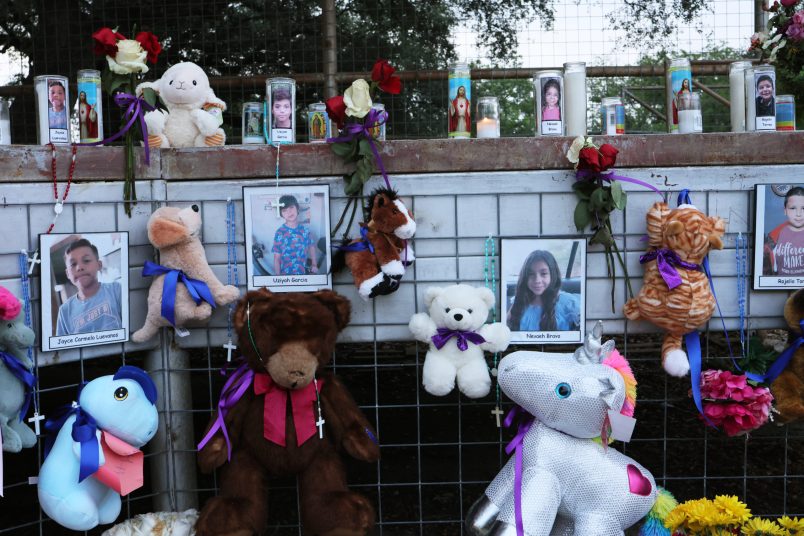Yesterday I noticed this Axios poll which found that gun violence has soared past opioids and fentanyl as the country’s biggest public health concern. There are some caveats to this data point. It’s jumped from 17% of respondents calling it the greatest threat to 26%. Perhaps more importantly, it’s a jump since February. So this may be a blip more than a trend, though there is polling evidence suggesting a more sustained trend. But in line with yesterday’s discussion of trends bubbling under the national political conversation, this data point got me thinking about the politics of gun control itself (and, yes, I’m using the old fashioned “gun control” phrasing intentionally).
These new polls aren’t polls testing assault rifle bans or background checks. They focus more on threats to public health, whether mass shooting massacres are preventable and more. It’s worth considering whether we must rethink the politics of guns as a matter of public advocacy.
One of the dark, ratcheting dynamics of U.S. gun culture is that advocates of unfettered gun access and mass casualty chic become the perverse beneficiaries of the very scale of the problem they created. Most of the country now has more or less totally unrestricted gun laws. Many states now allow “open carry” or “concealed carry” with no permit whatsoever. Just as important is the sheer volume. The total number of guns in circulation in the U.S. is more than the number of Americans, well into the hundreds of millions, though the precise number is all but impossible to know since the U.S. keeps no such records. In this context, gun advocates can shrug at background checks or AR-15 bans and say, what’s the point?
And it’s not a bad argument. Gun mania and mass casualty chic are so out of control in our society, have put so many guns into circulation, that it’s hard to know where to start. This is the way in which I mean the they become the perverse beneficiaries of the sheer scale of the problem they created. But the problem here is also one of policy literalism. Gun culture advocates get their opponents tripped up in the narrowness of their specific policy proposals. They tend to be so limited and incremental that they get spun in circles about whether the particular reform would even accomplish that much. But this is seldom if ever how politics works. Politics drives policy; not the other way around. Political arguments get won or lost way upstream of policy specifics. Politics is about defining who is at fault, what’s a problem and what’s not, what problems we’re committing to solving regardless of the particulars and what we throw up our hands about and decide we’re helpless.
In most Republican culture-war politics, specific policy prescriptions tend to be few and far between. They’re more about defining the other side as out of touch with voters’ core values. They function more as symbolic identifiers meant to define which side a person is on. There are a whole range of threats — terrorism, pedophiles, this or that terrifying disease — where we as a society barely get into judging what a specific policy is able to accomplish. Our attitude is basically anything that could or might help we’ll try. We’ve spoken this week about the power of abortion rights politics today. But abortion seems to be driving results in some elections for offices that have nothing to do with abortion policy. Sometimes voters just want to punish candidates who are on the wrong side of the issue, even if the specific office has no impact on the question. We’ve noted how threats to democracy, rollbacks of abortion rights and more have melded for many voters into a more general threat of extremism and loss of basic rights. The politics of mass casualty chic is part of the same phenomenon.
In different ways, each example illustrates that policy particulars come at the end of the process, not the beginning. More to the point, specific policies only really become relevant when the political will has been demonstrated and consolidated.
None of this is to diminish the work of all the activists who’ve spent years fighting in the trenches for background checks, restrictions on magazine capacity, red flag laws and more. It’s incredibly important. Each incremental step forward matters. The point is that the politics doesn’t need to wait for the policy, doesn’t need to litigate the policy.
The question is simple. It’s not how much any individual policy would limit the carnage. It’s whether as a society we are serious about ending this — in which case we’re going to try anything and everything — or we simply decide we don’t care. Does society exist for us or for the guns? Are we helpless in the face of firearms mania and mass casualty chic or are we ready to act? Democrats have been brutalized on this hill so many times I understand their reluctance. But there are signs the public is growing weary of the carnage and the happy talk that greets every new massacre.






